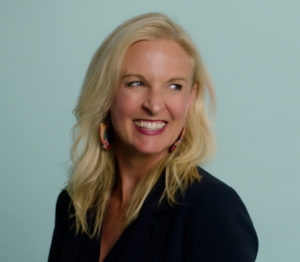
A WELCOMING AND INCLUSIVE WORKSPACE
Jennifer Brown Speaks with TICF about the Value of Allyship and Belonging
As part of our commitment to the Toyota Way of Working, Toyota Industries Commercial Finance (TICF) hosted a Diversity Month event, “Creating Inclusive Cultures of Belonging Where Everyone Thrives,” in partnership with Bastian Solutions, ProLift Toyota Material Handling—Elevate Women’s Network, and Toyota Material Handling—Toyota Women’s Impact Network.
 Guest speaker Jennifer Brown, founder, CEO, and President of Jennifer Brown Consulting and author of Inclusion and How to Be an Inclusive Leader, offered tools to help foster healthy conversations as we all work to provide a culture that engages the diverse talents and passions of everyone in our workspaces.
Guest speaker Jennifer Brown, founder, CEO, and President of Jennifer Brown Consulting and author of Inclusion and How to Be an Inclusive Leader, offered tools to help foster healthy conversations as we all work to provide a culture that engages the diverse talents and passions of everyone in our workspaces.
A member of the LGBTQIA+ community, Jennifer has devoted the past two decades of her career to helping organizations build more inclusive environments by creating awareness of what their employees experience on a day-to-day basis.
The concept of “covering” was a core part of the conversation. Coined by Kenji Yoshino, “covering” occurs when a person diminishes aspects of their identity so that they can be more easily accepted in certain spaces. “So, how can we welcome everyone to this conversation?” Jennifer asked. “Workplace cultures of belonging need to look different than those of the past.”
For example, modern workplaces need to positively acknowledge differences, rather than ignore them, so that everyone can be seen and heard. “Being a member of a certain identity can lead to an extra burden and extra work,” Jennifer explained. “We need to be aware of what those differences mean and embrace them, rather than resorting to phrases like, ‘I don’t see color.’ Today, that mindset is viewed as a minimization of people’s identities.”
And these identities go beyond race, gender, and ethnicity. Family dynamics, socioeconomic status, religious beliefs, and mental health also lead to “covering” behaviors that organizations must be aware of to truly claim a culture of belonging.
This, Jennifer explained, is where learning comes in. Organizations that demonstrate curiosity and active listening, who seek to understand their employees and their experiences, are taking proper steps toward a more inclusive environment. “There doesn’t need to be shame and blame,” she shared. “We don’t want to write off anybody as not being helpful, because the work requires a variety of messengers. We want to be calling people in, not out.”
Facilitator Tania Sode, Diversity, Equity, and Inclusion Director at TICF, added that allyship is “a journey.”
“And it’s circular in nature,” Jennifer remarked. “It’s an evolution, a muscle we build over time. Practice is key.
So, what are some immediate actions that we can take to become more inclusive? Jennifer offered several first steps, including:
- Recognizing where we have privilege: We can work to see where we might have advantages, and then try to use those advantages to help others who may not share the same type of privilege.
- Sharing our pronouns: This allows members of the LGBTQIA+ community to be seen and appreciated for who they are, building immediate belonging.
- Demonstrating curiosity and active listening: Be open to learning more about others’ experiences. Asking questions is okay, so long as we are seeking to understand.
- Sharing our diversity stories: Everyone has experienced difference at some point, and while sharing our stories may feel uncomfortable, this vulnerability can help others become more open.
- Looking at our inner circles: Our professional—and personal—networks should reflect the diverse world we live in.
In the end, “it’s about meeting people where they are and being humble to the journey,” Jennifer said. “It won’t be perfect, but it will be worth it.”
Humility, curiosity, and the pursuit of continuous improvement are core values that contribute to the Toyota Way of Working. Having invited our participants to take their first steps on the journey of creating a more inclusive workspace, we also invite our readers to look for opportunities to join the conversation, share their experiences, and use those experiences to become advocates and allies.

Recent Comments